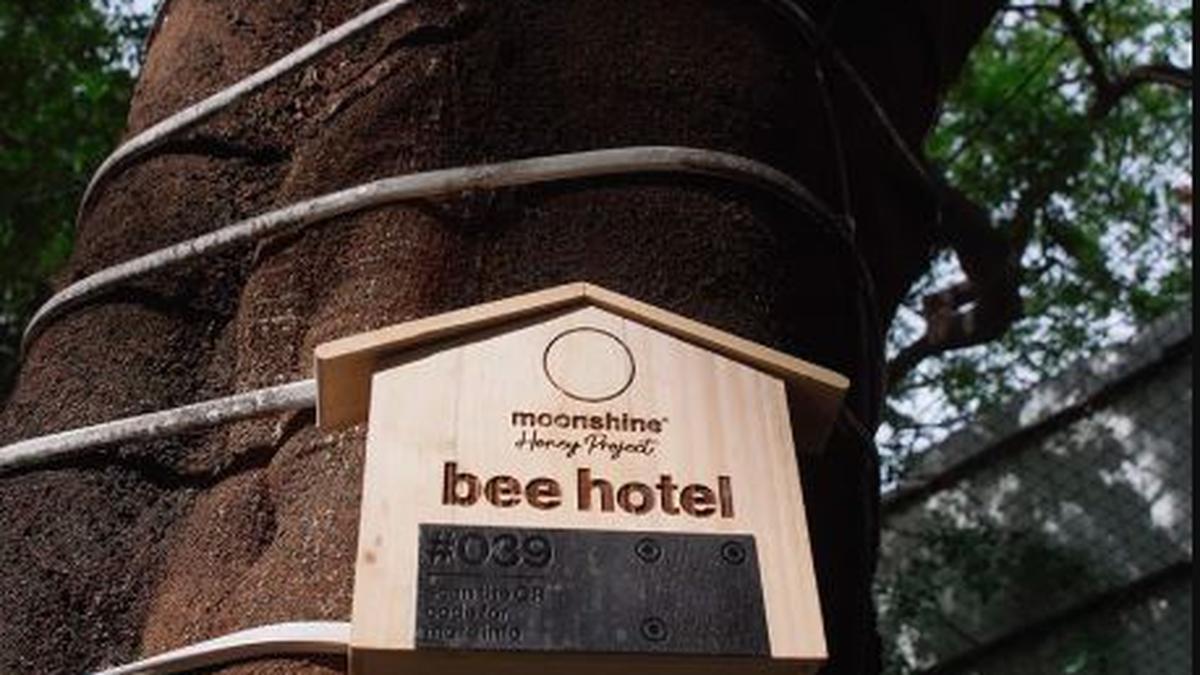By Radheshyam Jadhav
Copyright thehindubusinessline

Long before beer foamed in mugs or wine swirled in goblets, there was mead — honey wine — the oldest, most versatile drink known to humankind. It has flowed through Viking sagas, Tolkien’s Lord of the Rings, Game of Thrones, and even the halls of Hogwarts. Yet, for centuries, in India, this golden drink was missing from the table.
That changed when Nitin Vishwas stumbled upon an article about mead in a flight magazine. Curious and craving a taste, he and his friend Rohan Rehani searched for a meadery in India — only to discover that not a single one existed, not even in Asia. From that absence, Moonshine, India’s first meadery, was born in Pune in 2018.
But Moonshine’s story is not just about reviving an ancient drink. It has also taken on a mission far greater than indulgence: saving the bees. Climate change, erratic flowering patterns, shrinking nectar flow, and cutthroat competition in the beekeeping industry have pushed beekeepers to despair, threatening Moonshine’s own supply of honey. The founders realised that protecting their craft meant protecting the pollinators that make it possible.
Protecting Pollinators
So, Moonshine began producing its own honey by building a network of beekeepers and farmers. It launched an audacious initiative — not just to safeguard honeybees, but also the often-overlooked solitary bees. Unlike their honey-making cousins, solitary bees don’t live in hives and produce honey. They are quiet, independent pollinators — able to fertilize crops like chilies, tomatoes and bell peppers that honeybees struggle with. India is home to hundreds of these unsung heroes, but urban sprawl has robbed them of the cracks, hollows, and burrows they once called home.
Moonshine’s answer? Bee hotels. These are tiny sanctuaries designed with care, offering solitary bees prime “real estate” to rest, recharge, and nest. Already, these wooden havens are appearing at the meadery, in private homes, and in partner bars and restaurants in Pune—turning Moonshine’s mission into a buzzing urban movement.
And here’s the wonder: solitary bees are no threat. They don’t form colonies. They don’t swarm. They sting only if provoked. What they do is quietly pollinate, quietly sustain, and quietly remind us that without them, there would be no food.
Honey Business
Before starting Moonshine, Rehani even took a course in beekeeping to better understand the supply chain and raw materials. As Moonshine grew and entered more bars and restaurants, people often began asking for its honey. Consumers, too, were curious about the raw ingredients. “And for a surrogate brand, it made perfect sense to sell our raw material – it reinforces that we use quality ingredients,” says Rohan.
That was the beginning of Moonshine’s journey into honey-making. Today, the meadery manages 600 honeybee boxes along with a full-time beekeeper, while continuing to buy from and support independent beekeepers. It now produces its own monofloral honey, much of which is sold directly to businesses or consumers.
“Depending on the floral source, the taste and texture of honey changes and there’s a wide world of flavours,” says Rehani. That philosophy gave birth to the Moonshine Honey Project, which has grown rapidly over the past year, driven largely by B2B sales. Currently, Moonshine supplies honey to brands like Subko, Bombay Salad Company, Cobbler & Crew, Elephant & Co, and Malaka Spice. Looking ahead, Moonshine plans to expand its range, offering more diverse honeys through its web store and collaborating with bars to highlight honey’s versatility in cocktails and mocktails.
Mead in a New Avatar
“Moonshine makes tasty, light and fruity beverages without any gluten or artificial flavours! With styles like Salted Kokum, Pickled Jalapeno, Coffee and more, we don’t make boring beverages,” says Rehani with a chuckle. Moonshine is now available in Mumbai, Pune, Bangalore, and Goa, and has also begun exporting to the UAE and the UK.
From resurrecting the world’s oldest drink to saving pollinators, Moonshine has come a long way. It is not just a meadery but a movement — one that brews ancient traditions with modern innovation, while reminding that every sip is also a toast to the bees that make it possible.
Published on September 30, 2025



